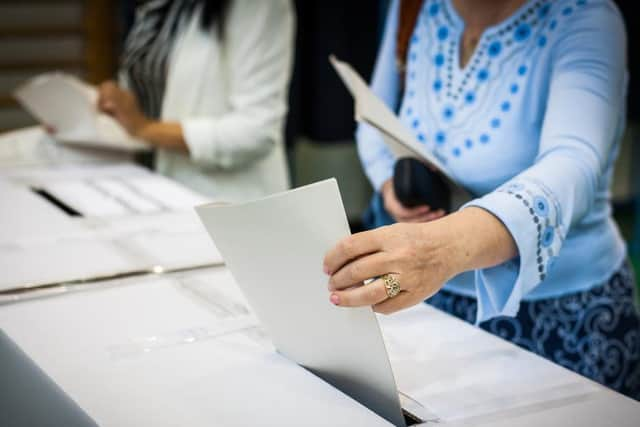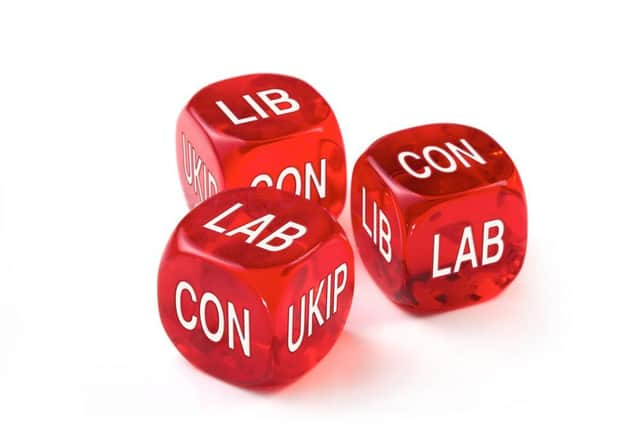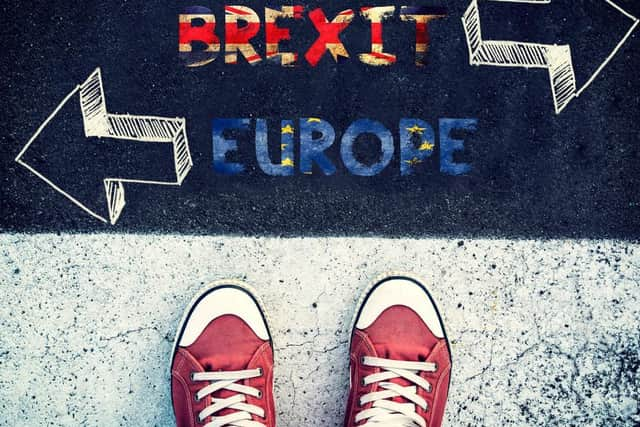General Election 2019: what is tactical voting and will it make a difference to the result?
and live on Freeview channel 276
Many people will simply "vote their conscience", putting a tick next to the party which they feel best represents their political beliefs.
However, many others will treat their vote more like a chess move and seek to outfox the opposition.


What is tactical voting?
Advertisement
Hide AdAdvertisement
Hide AdTactical voting is where you vote in the way most likely to produce the results you want to see - rather than simply picking the party or candidate most in line with your views.
That might seem like an odd distinction: surely voting for your preferred candidate improves their chance of winning, and therefore brings about the results you want?
While that is true in theory, in reality there are parts of the country where certain candidates have absolutely no chance of gaining a meaningful number of votes.


For example, even if the Green Party is most in line with your political beliefs, there are places where they have no reasonable chance of winning.
Advertisement
Hide AdAdvertisement
Hide AdBecause Britain uses a First Past the Post system, whereby the winner of the General Election is the party that wins the most constituencies, getting a lot of votes does no-one any good if they are spread out amongst lots of second places.
In such circumstances, it can make more sense to vote for a candidate you wouldn’t normally support if they have a better chance of defeating those you want to see kept out.
Tactical voting is essentially designed to prevent your worst-case scenario from coming true.


Does it actually work?
Tactical voting is believed to have played an important role in past elections, such as Tony Blair’s landslide Labour victory in 1997.
Advertisement
Hide AdAdvertisement
Hide AdAnd for this year’s election, politicians themselves have made it clear that they will be acting tactically.
The Brexit Party have announced they will not stand in certain constituencies in an effort to drive all pro-Brexit voters towards a single party.
A number of websites and apps have already appeared, offering advice on how best to vote depending on which constituency you are a part of.
For many people, this election boils down to Brexit, so by voting tactically you can attempt to influence what happens next.
How could electoral pacts impact the election result?
Advertisement
Hide AdAdvertisement
Hide AdPoliticians have already made it clear that they will be acting tactically in this year's general election.
The Brexit Party have announced they will not stand in certain constituencies in an effort to drive all pro-Brexit voters towards a single party.
Party leader Nigel Farage initially planned to take on the Tories in more than 300 seats, but after what he called Boris Johnson's "shift in position" on Brexit, he decided it was best not to split the pro-Brexit vote.
The party will continue to stand elsewhere, but they won't stand in 317 seats won by the Tories in 2017, instead focusing their efforts on trying to take seats held by Labour.
Advertisement
Hide AdAdvertisement
Hide AdSimilarly, Remain supporting parties, the Liberal Democrats, Greens and Plaid Cymru, have announced an electoral pact in 60 constituencies in the hope of taking seats.
In Wales, two of the parties won't put forward candidates, meaning the third party has a better chance of winning a seat, and in England it will be an agreement between the Greens and Lib Dems.
All of them are in support of another Brexit referendum and want the UK to stay in the EU.
By not standing candidates in certain seats, political parties are forcing voters to choose tactically. However, it's still unclear if this will impact the overall result.